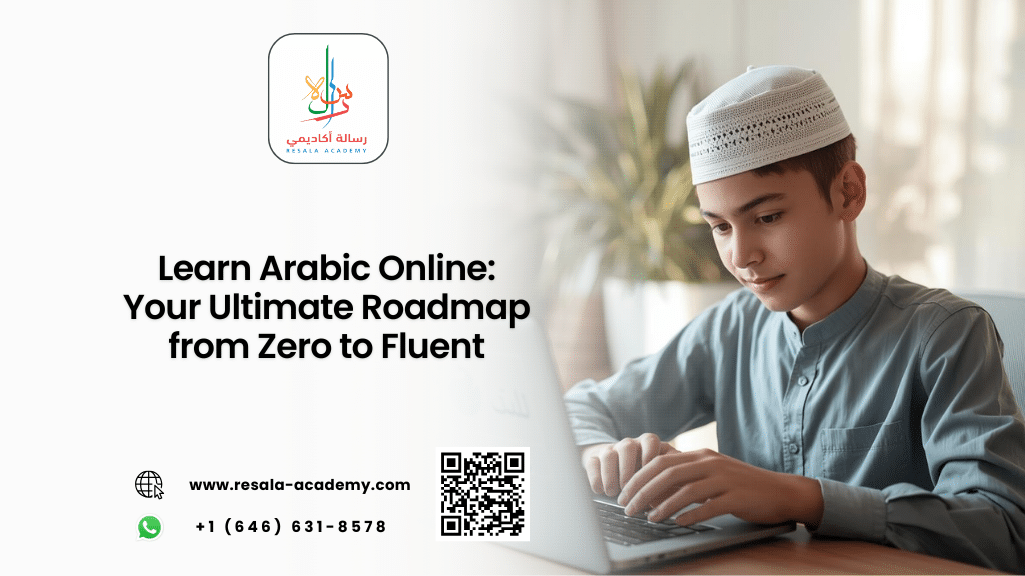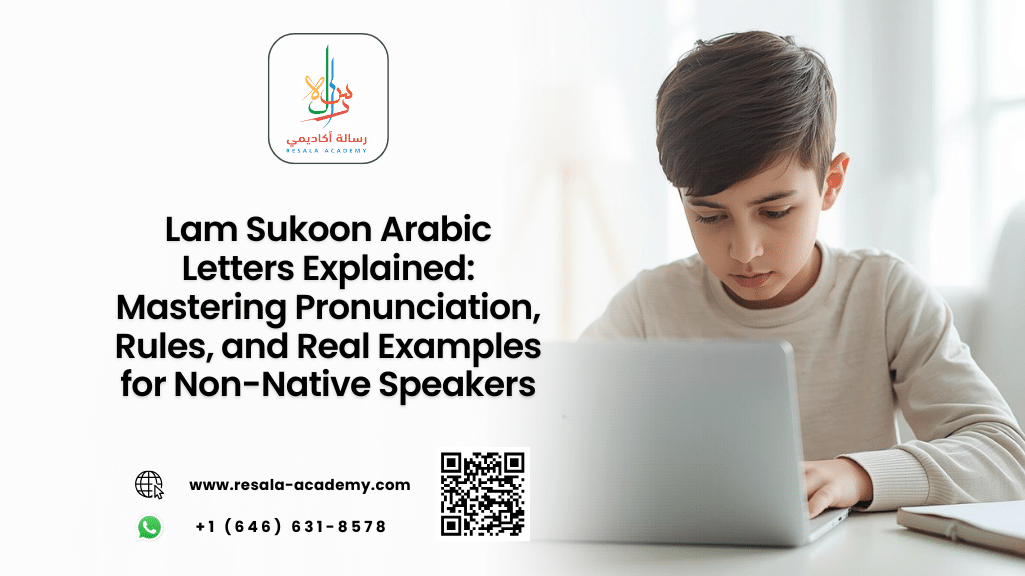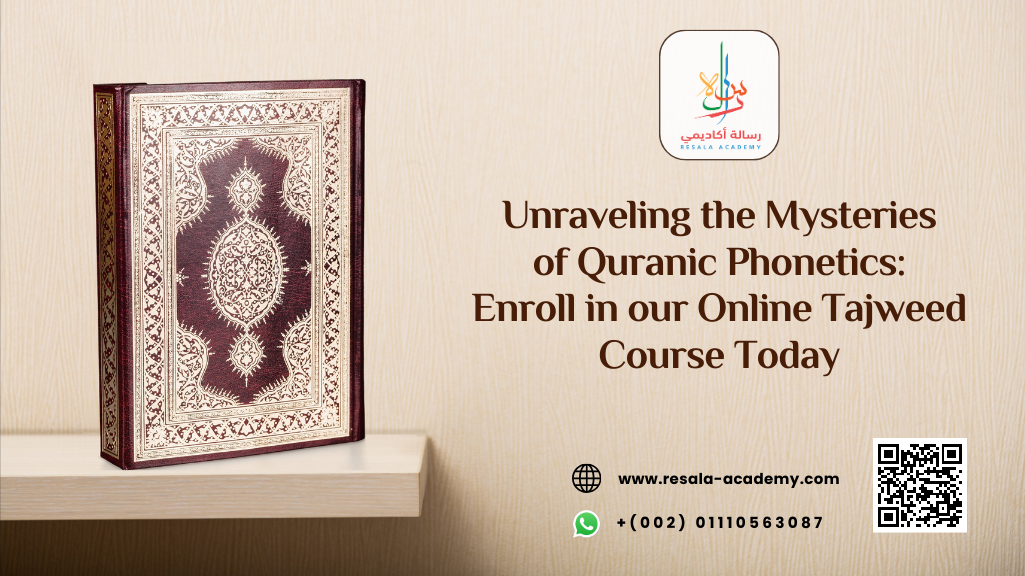Table of Contents
Learn Arabic Online: Your Ultimate Roadmap from Zero to Fluent
In today’s interconnected world, the ability to communicate across cultures is more valuable than ever. Among the most captivating and widely spoken languages is Arabic — a language of rich history, deep-rooted culture, and profound religious significance. Whether you’re drawn to Arabic for travel, business, religious studies, or personal growth, learning Arabic online has never been more accessible or effective.
This comprehensive guide will walk you through everything you need to know to learn Arabic online — from choosing the right platform to mastering the language fluently. Along the way, we’ll highlight Resala Academy, a premier institution offering tailored Arabic and Quran courses for non-native speakers.
Why Learn Arabic Online?
Learning Arabic online offers flexibility, accessibility, and a personalized pace that traditional classroom settings often lack. With the rise of digital learning platforms, students can now access native-speaking instructors, interactive lessons, and immersive content from anywhere in the world.
Benefits of Learning Arabic Online
- Flexibility: Study at your own pace, on your own schedule.
- Access to Native Instructors: Learn authentic pronunciation and cultural context.
- Cost-Effective: Online courses are often more affordable than in-person classes.
- Customized Learning Paths: Tailored lessons based on your proficiency level.
- Interactive Tools: Multimedia resources, quizzes, and live sessions enhance engagement.
Read more about: 20 Arabic Words for Kids: Teaching Islamic Vocabulary to Non-Native Children
Understanding the Arabic Language: A Brief Overview
Arabic is a Semitic language spoken by over 400 million people across more than 25 countries. It is the liturgical language of Islam and one of the six official languages of the United Nations.
Key Features of Arabic
- Script: Written from right to left in a cursive script.
- Dialects: Includes Modern Standard Arabic (MSA) and various regional dialects.
- Grammar: Rich and complex, with root-based word formation.
- Pronunciation: Includes unique sounds not found in many other languages.
For example, the Arabic word for “peace” is:
السَّلَامُ (As-Salām)
Translation: Peace
Context: Commonly used in greetings such as “السلام عليكم” (As-salāmu ʿalaykum) — “Peace be upon you.”
Read more about: Say It Right: The Meaning and Usage of Yes in Arabic Conversations
Step-by-Step Roadmap to Learn Arabic Online
Step 1: Define Your Learning Goals
Before diving into any learn Arabic online course, clarify your objectives:
- Are you learning for religious purposes?
- Do you want to travel or work in the Arab world?
- Are you interested in reading Arabic literature or the Quran?
Your goals will shape your learning path and help you choose the right course.
Step 2: Choose the Right Platform
Not all platforms are created equal. For non-native speakers, it’s essential to find a course that caters specifically to your needs. Resala Academy excels in this area, offering structured programs in both Arabic language and Quranic studies.
Why Choose Resala Academy?
- Certified native Arabic instructors
- Live one-on-one and group classes
- Flexible scheduling
- Courses for kids and adults
- Quran memorization and Tajweed classes
Step 3: Start with the Basics
Begin with the Arabic alphabet and pronunciation. Mastering the script is crucial for reading and writing.
The Arabic Alphabet
There are 28 letters in the Arabic alphabet. For instance:
ب (Bāʾ) — Pronounced like “b” in “bat”
ت (Tāʾ) — Pronounced like “t” in “top”
ث (Thāʾ) — Pronounced like “th” in “think”
Use interactive tools and flashcards to practice letter recognition and pronunciation.
Step 4: Learn Basic Vocabulary and Phrases
Start with everyday words and expressions. Here are some examples:
- Hello — مرحباً (Marḥaban)
- Thank you — شكراً (Shukran)
- Yes — نعم (Naʿam)
- No — لا (Lā)
- How are you? — كيف حالك؟ (Kayfa ḥāluka/ḥāluki?)
Use spaced repetition apps like Anki or Quizlet to reinforce vocabulary.
Step 5: Dive into Grammar and Sentence Structure
Arabic grammar can be challenging, but it’s essential for fluency. Focus on:
- Verb conjugation
- Noun-adjective agreement
- Definite and indefinite articles
- Prepositions and pronouns
For example:
أَنا أَدرُسُ اللُّغَةَ العَرَبِيَّةَ
Translation: I study the Arabic language
Grammar: Verb (أَدرُسُ) + object (اللُّغَةَ العَرَبِيَّةَ)
Read more about: How to Master Arabic Script in 30 Days Through Interactive Online Arabic Classes
Step 6: Practice Listening and Speaking
Listening to native speakers helps with pronunciation and comprehension. Try:
- Watching Arabic TV shows or YouTube channels
- Listening to Arabic podcasts
- Participating in conversation classes at Resala Academy
Step 7: Read and Write Regularly
Start with children’s books, then progress to newspapers and novels. Writing short paragraphs or diary entries in Arabic helps reinforce grammar and vocabulary.
Step 8: Immerse Yourself in the Language
Immersion is key to fluency. Surround yourself with Arabic:
- Change your phone’s language settings
- Follow Arabic social media accounts
- Join Arabic-speaking communities online
Specialized Learning Tracks to Learn Arabic Online Effectively
To truly master Arabic, learners must go beyond general language instruction and explore specialized tracks that cater to their specific interests or goals. Choosing the right focus area can dramatically improve retention and engagement when you learn Arabic online.
Business Arabic Courses:
- Tailored for professionals engaging with Arabic-speaking clients or markets.
- Emphasizes industry-specific vocabulary, formal communication, and negotiation phrases.
- Ideal for entrepreneurs, diplomats, and international business personnel.
Arabic for Religious Studies:
- Focuses on Quranic Arabic, Hadith terminology, and classical texts.
- Essential for students pursuing Islamic studies or aiming to understand the Quran in its original language.
- Resala Academy offers structured Quranic Arabic programs with Tajweed and Tafsir integration.
Arabic for Travelers:
- Concentrates on conversational skills, cultural etiquette, and essential travel phrases.
- Helps learners navigate airports, hotels, and local interactions with ease.
- Includes dialect exposure for popular travel destinations like Egypt, Morocco, and the UAE.
Academic Arabic Preparation:
- Designed for students planning to study at Arabic-speaking universities.
- Covers academic writing, reading comprehension, and formal presentation skills.
- Prepares learners for proficiency exams like ALPT or university entrance tests.
Advanced Strategies to Accelerate Your Online Arabic Learning Journey
Once you’ve laid the foundation, applying advanced strategies can exponentially boost your fluency when learning Arabic online. These methods are especially effective for intermediate to advanced learners seeking rapid progress.
Shadowing Native Speakers:
- Listen to Arabic audio and repeat simultaneously to mimic pronunciation and intonation.
- Enhances listening comprehension and speaking fluency.
- Use content from Arabic news channels, podcasts, or Resala Academy’s live sessions.
Language Exchange Partnerships:
- Pair with native Arabic speakers learning your language for mutual practice.
- Encourages real-time conversation and cultural exchange.
- Platforms like Tandem or HelloTalk are ideal for finding partners.
Arabic Subtitles and Transcripts:
- Watch Arabic videos with subtitles to reinforce vocabulary and grammar.
- Reading transcripts while listening improves reading speed and comprehension.
- Combine with Quran recitations and tafsir videos for religious learners.
Weekly Speaking Challenges:
- Set specific goals like narrating a story, describing your day, or debating a topic in Arabic.
- Record yourself and review for pronunciation and grammar accuracy.
- Participate in Resala Academy’s speaking clubs or student forums for feedback.
By integrating these advanced techniques into your learn Intensive Arabic online course, you’ll not only retain more information but also gain the confidence to use Arabic in real-world situations.
Why Resala Academy is the Best Choice for Learning Arabic Online
Resala Academy stands out as a trusted institution for non-native speakers aiming to master Arabic and Quranic studies. Their courses are designed to accommodate learners of all levels — from absolute beginners to advanced students.
What Sets Resala Academy Apart?
- Structured Curriculum: From alphabet to advanced grammar
- Live Interaction: Real-time feedback from native instructors
- Religious Integration: Quranic Arabic and Tajweed included
- Cultural Insights: Learn about Arab customs and traditions
- Student Support: Personalized guidance and progress tracking
Your Gateway to Fluency: Enroll with Resala Academy Today!
If you’re serious about mastering Arabic, there’s no better place to start than Resala Academy. With expert instructors, flexible online classes, and a curriculum tailored for non-native speakers, Resala Academy is your ultimate partner on the journey from zero to fluent.
Whether you’re learning Arabic for religious, academic, or personal reasons, Resala Academy provides the tools, support, and community you need to succeed.
👉 Ready to start your journey? Click here to enroll now and unlock the beauty of the Arabic language today!
Frequently Asked Questions (FAQs)
1. How long does it take to become fluent in Arabic?
Fluency depends on your learning pace, consistency, and the type of Arabic you’re learning. On average, it takes:
- 6–12 months for conversational fluency in Modern Standard Arabic
- 1–2 years for advanced reading and writing skills
With structured courses like those at Resala Academy, you can accelerate your progress.
2. Is it better to learn Modern Standard Arabic or a dialect?
Modern Standard Arabic (MSA) is recommended for beginners because:
- It’s used in formal writing, news, and education
- It provides a foundation for understanding various dialects
Once you’re comfortable with MSA, you can explore dialects like Egyptian, Levantine, or Gulf Arabic.
3. Can I learn Arabic online without a teacher?
While self-study is possible, having a teacher offers:
- Immediate feedback
- Correct pronunciation
- Structured lessons
Platforms like Resala Academy offer live classes with native instructors, which significantly enhance learning outcomes.
4. What makes Arabic difficult for English speakers?
Challenges include:
- Right-to-left script
- Unique sounds (e.g., ع, غ, ق)
- Complex verb conjugations
- Gendered nouns and plurals
However, with consistent practice and expert guidance from institutions like Resala Academy, these challenges become manageable.
5. Are there Arabic courses for children?
Yes! Resala Academy offers specialized Arabic courses for kids, focusing on:
- Fun and interactive lessons
- Age-appropriate vocabulary
- Quranic memorization and Tajweed
These courses are designed to engage young learners and build a strong foundation in the language.
Conclusion
Learning Arabic online is a rewarding endeavor that opens doors to new cultures, spiritual insights, and global opportunities. With the right mindset, resources, and guidance, anyone can go from beginner to fluent.
Resala Academy offers a proven path for non-native speakers to master Arabic and Quranic studies. Their expert instructors, flexible scheduling, and personalized approach make them the ideal partner for your language journey.
🌍 Don’t wait. Start your journey to fluency today with Resala Academy. The Arabic-speaking world awaits you!




